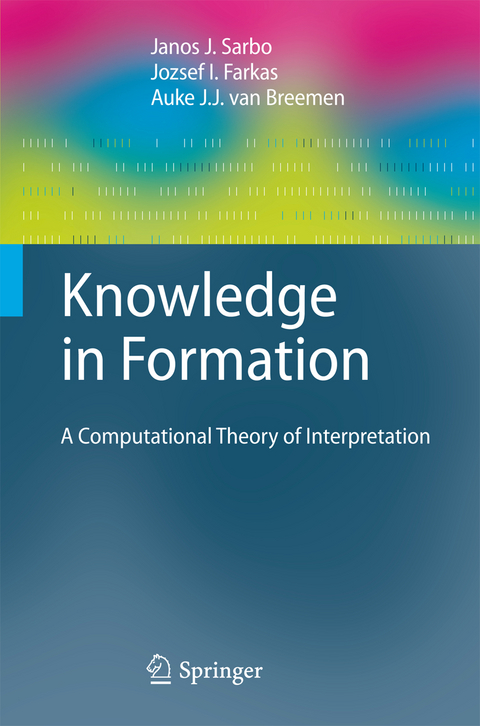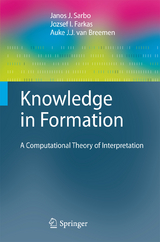Knowledge in Formation
Springer Berlin (Verlag)
978-3-642-17088-1 (ISBN)
Humans have an extraordinary capability to combine different types of information in a single meaningful interpretation. The quickness with which interpretation processes evolve suggests the existence of a uniform procedure for all domains. In this book the authors suggest that such a procedure can be found. They concentrate on the introduction of a theory of interpretation, and they define a model that enables a meaningful representation of knowledge, based on a dynamic view of information and a cognitive model of human information processing.
The book consists of three parts. The first part focuses on the properties of signs and sign interpretation; in the second part the authors introduce a model that complies with the conditions for sign processing set by the first part; and in the third part they examine applications of their model in the domain of logic, natural language, reasoning and mathematics. Finally they show how these domains pop up as perspectives in an overall model of knowledge representation.
The reader is assumed to have some interest in human information processing and knowledge modeling. Natural language is considered in the obvious sense, familiarity with linguistic theories is not required. Sign theoretical concepts are restricted to a manageable subset, which is introduced gently. Finally, some familiarity with basic concepts of propositional and syllogistic logic may be useful.
The authors developed their approach based on their experience teaching the related theory at Radboud University, and their multidisciplinary interactions with research teams in the areas of knowledge representation, philosophy, artificial intelligence, natural language and logic.
Signs and Sign Interpretation; From Signs to Interpretants; A Semiotic Account of Interpretation Processes; A World of Signs; Perception and Cognition; Language Signs; Reasoning Signs
From the reviews:
"The book introduces a new model of knowledge representation that respects the properties of human information processing as well as the properties of signs. ... The book chapters are interpreted as events in a process that aims to conceptualize knowledge representation as a phenomnenon. The theory in the book is accompanied by a lot of relevant examples. Each chapter is finished by a short summary of related research. ... The book can be recommended to anybody interested in human information processing and knowledge modelling." (Jaroslav Pokorný, Zentralblatt MATH, Vol. 1244, 2012)
| Erscheint lt. Verlag | 17.6.2011 |
|---|---|
| Reihe/Serie | Cognitive Technologies |
| Zusatzinfo | XII, 217 p. |
| Verlagsort | Berlin |
| Sprache | englisch |
| Maße | 155 x 235 mm |
| Gewicht | 485 g |
| Themenwelt | Geisteswissenschaften ► Philosophie ► Logik |
| Informatik ► Theorie / Studium ► Künstliche Intelligenz / Robotik | |
| Schlagworte | Artificial Intelligence • cognitive science • Human information processing • Informationsverarbeitung • Intelligence augmentation • Interpretation • Knowledge Representation • Logic • natural language • Peirce • perception • Philosophy • Reasoning • Semiotics • Wissen |
| ISBN-10 | 3-642-17088-9 / 3642170889 |
| ISBN-13 | 978-3-642-17088-1 / 9783642170881 |
| Zustand | Neuware |
| Haben Sie eine Frage zum Produkt? |
aus dem Bereich




